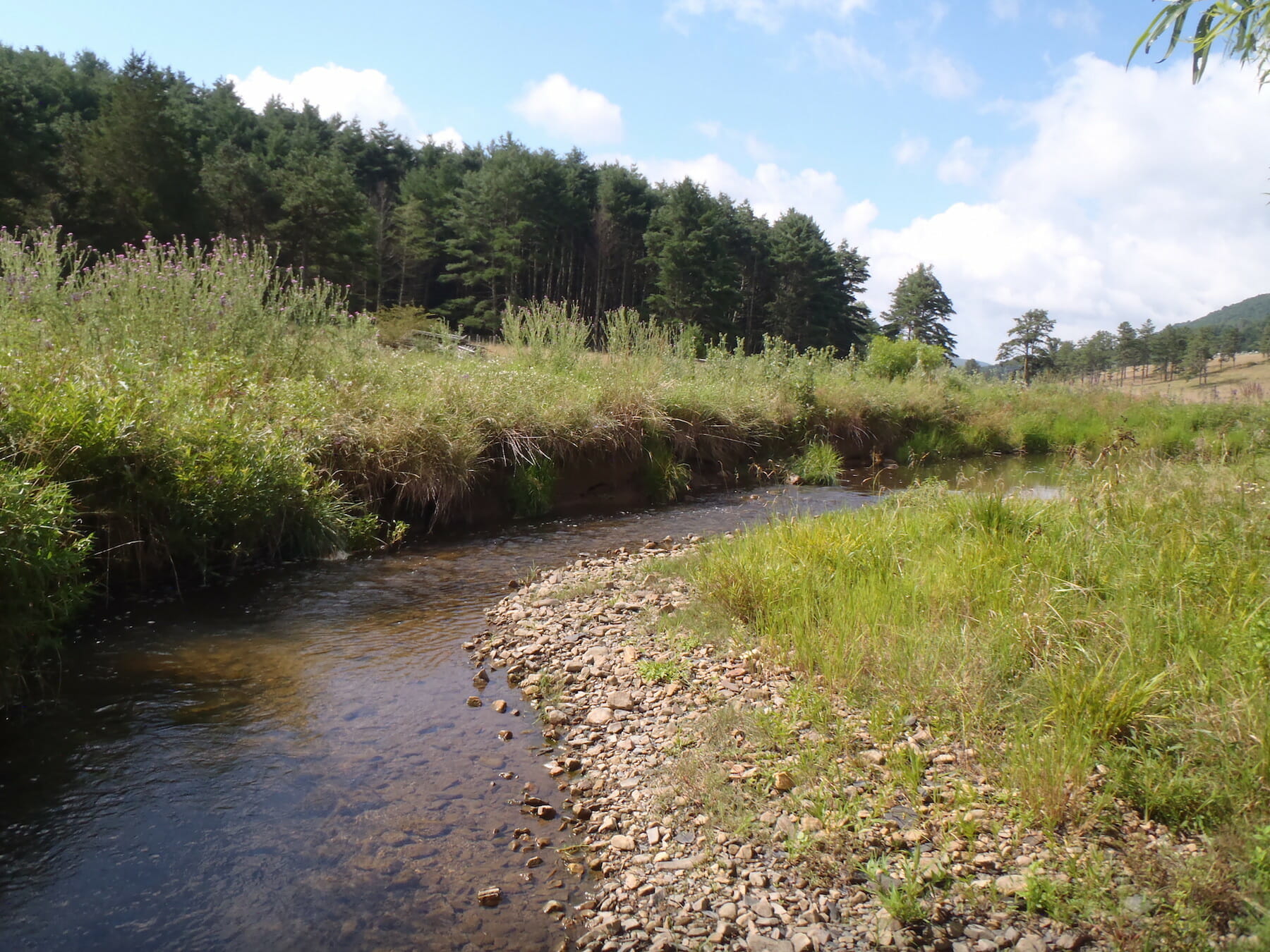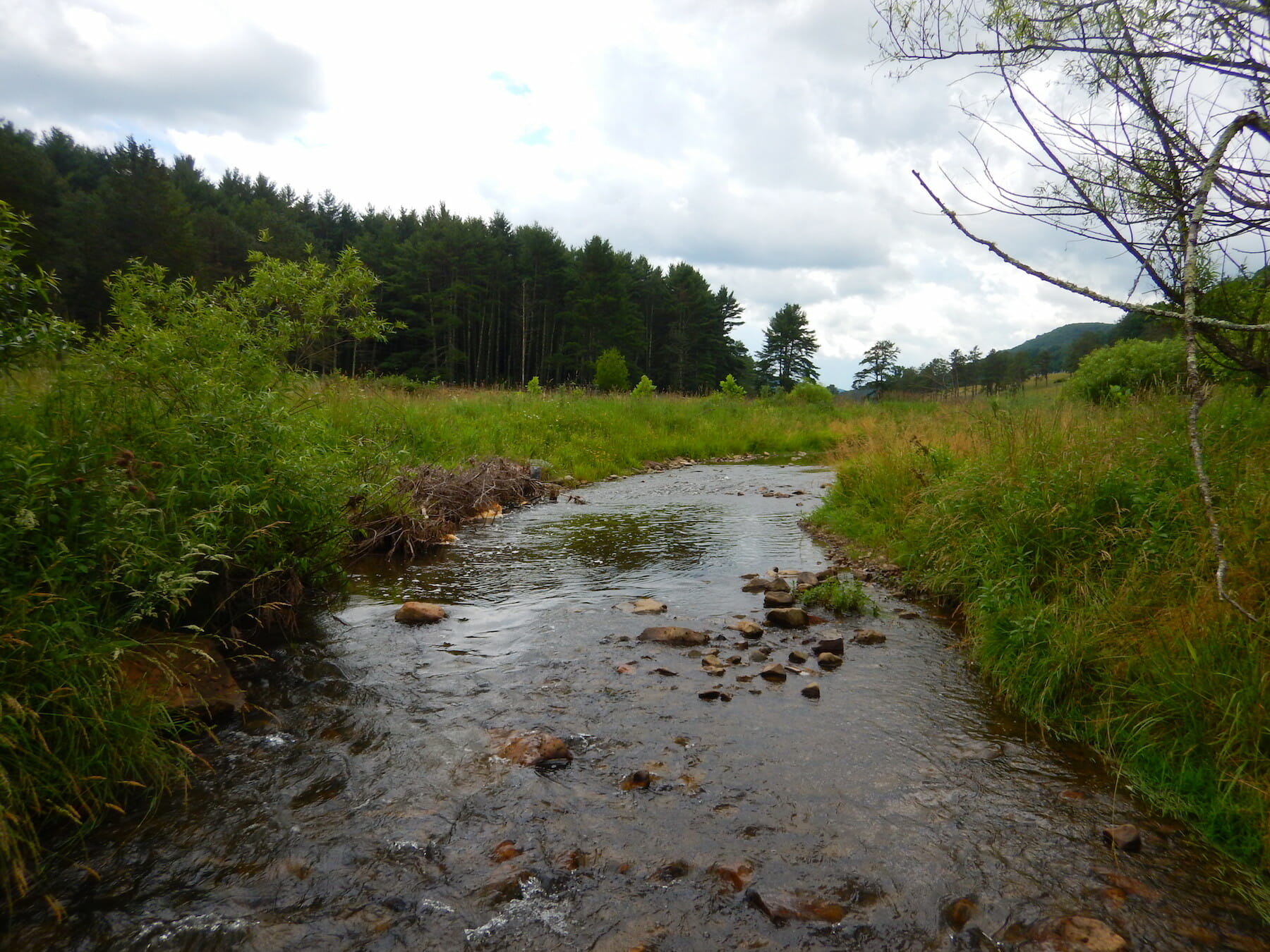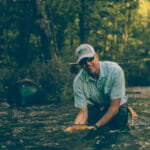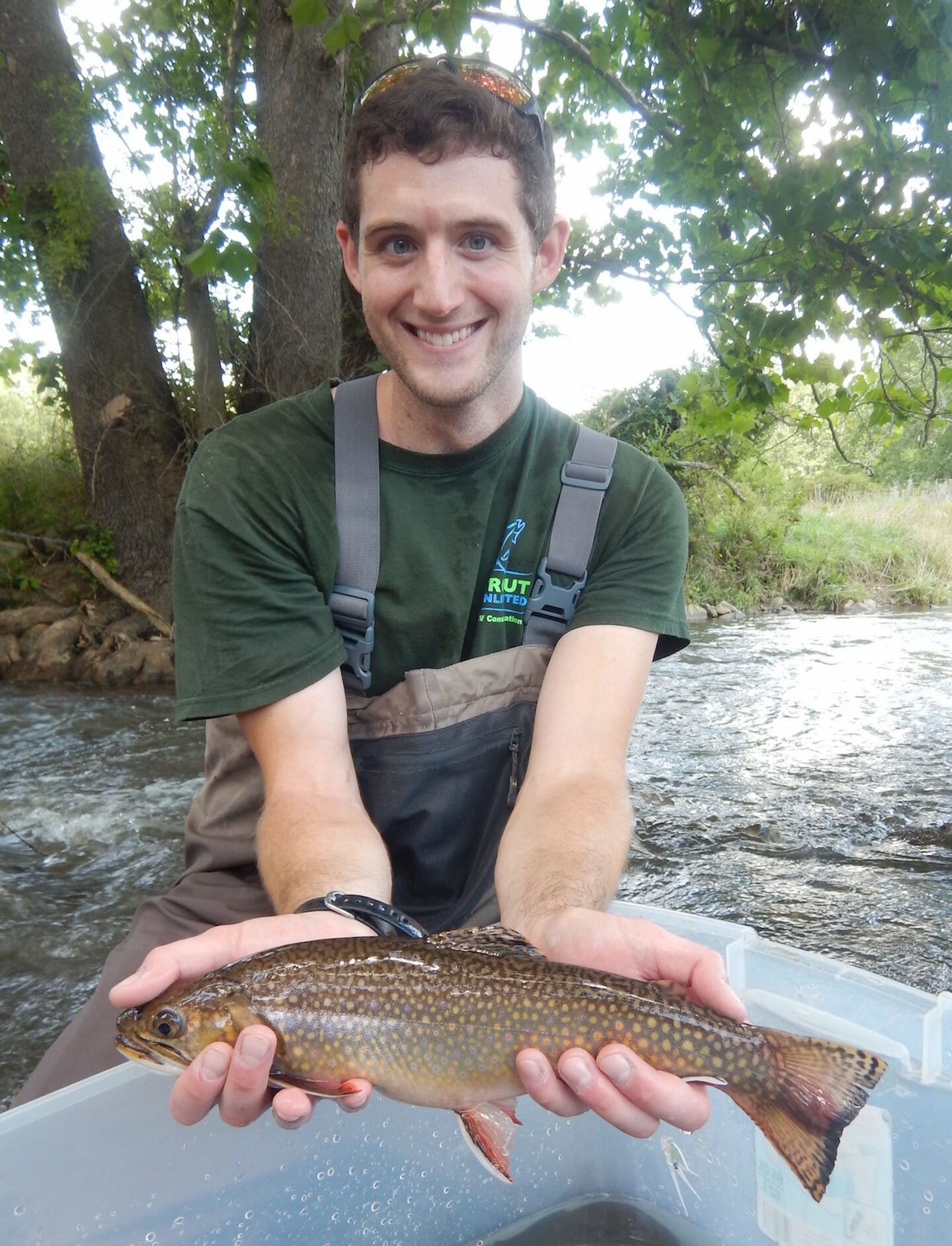TU’s work in West Virginia is improving conditions for trophy wild brook trout such as this 15-inch fish.
By Mandy Nix
Some have said that our history is in our trees, but for many others, there’s a blueprint of history in every ripple of water. It’s in the icy trickle from a limestone spring, and it’s in the hidden currents of an underground channel. It’s in a child’s first cast into the creek their great-grandfather fished, and it’s in the brook trout prowling the deepest pools.
In West Virginia, those brook trout are better off than they have been in recent history thanks to the work of Trout Unlimited, which recorded another year of monumental accomplishments in 2017 on both private land and with our national award-winning partnership with the Monongahela National Forest. Together, TU and our partners have completed restoration and monitoring projects to the benefit of over 100 miles of trout water in West Virginia this year alone.
With our partners on private lands:
- Engaged 100-plus volunteers to monitor 40 streams across the Potomac
- Planted 6,000 riparian trees and live stakes, and installed 26.5 miles of agricultural exclusion fence, 10 fish-friendly stream crossings, and nine alternative water sources to the benefit of 20 miles of in-stream habitat and 250 acres of riparian habitat
- Restored 4.5 miles of in-stream habitat using native rock and logs to create pool and run habitat
- Removed two perched culverts that were serving as barriers to Aquatic Organism Passage, replacing them with span bridges to reconnect 7 miles of headwater spring sources
With our partners on the Monongahela National Forest:
- Decommissioned and reforested 31 miles (totaling 94 acres) of obsolete roads
- Restored 19 miles of in-stream habitat using grip hoist techniques
- Restored 35 acres of riparian area along 14.5 miles of trout stream
- Mitigated two barriers to Aquatic Organism Passage to reconnect 2.5 miles of stream habitat
- Monitored physical, biological, and chemical parameters on 40 streams
 An eroded streambank in West Virginia prior to restoration work.
An eroded streambank in West Virginia prior to restoration work.
 The same section of stream after restoration work.
The same section of stream after restoration work.
In West Virginia, our history is in the waters pulsing throughout our mountain valleys. These Appalachian streams are where 15- to 20-inch brook trout once carved out spawning redds year after year, where the rivers ran cold and clean, and where our heritage as a people and a place is preserved in a singular resource: water.
With each waterway that Trout Unlimited protects, restores, reconnects and sustains, we’re setting the stage for our only native trout in the Eastern United States to return with robust and widespread numbers. We are shaping the history of tomorrow, making our communities more resilient, and putting our people to work in the process.
Such efforts are catalyzed by support from Trout Unlimited’s talented network of Trouters, volunteers and conservation partners, including local landowners, agricultural producers, land trusts, the Natural Resources Conservation Service, the Farm Service Agency, the US Forest Service, the US Fish & Wildlife Service and their Partners for Fish & Wildlife Program , the West Virginia Division of Natural Resources, the West Virginia Department of Environmental Protection, both state and federal Departments of Agriculture, and many others. Our fish don’t see political boundaries, and neither do our conservation efforts.
We are seeing brook trout where there were none before. We are seeing larger fish and more abundant populations. We are collecting water quality and fish community data sets that give us the ability to monitor the health of watersheds as a whole.
As we look back on one of the best years yet in WV for trout, we are also looking forward to continuing our efforts to the benefit our fish, our waterways, and our people. One stream at a time.
Mandy Nix is the AmeriCorps WV Restoration and Monitoring Organizer for Trout Unlimited’s Potomac Headwaters Home River Initiative. If you’d like to chat more about Trout Unlimited’s work in the Potomac headwaters, reach out to her at mnix@tu.org. Additional information can be found on the TU PHHRI Facebook page: https://www.facebook.com/PHHRI/.



